Sound Instruments and Sonic Cultures: An Interdisciplinary Conference
15-16 December 2020, Bradford.
National Science and Media Museum.
Conference website
Keynote speakers: Mara Mills (NYU Steinhardt) Trevor Pinch (Cornell University)
COVID-19 NOTICE: In view of the unpredictability of the current pandemic situation, while we intend to go ahead with an ‘in person’ conference in December, we have a contingency plan to run the conference online should this become necessary. Please indicate in your submission whether you would want to participate in either/both formats.
Modernity has witnessed an accelerating proliferation of sound instruments—devices that allow humans to purposefully produce, capture, observe, manipulate, broadcast or otherwise interact with sound. Examples are numerous: sound instruments include all musical instruments, acoustic and electronic, as well as scientific, medical, and military instruments that operate sonically, from the tuning forks and resonators of 19th-century acousticians, to Geiger-Müller counters, Fessenden oscillators (sonar), and ultrasound scanners. Sound recording, playback, and listening devices are sound instruments—record, CD, and MP3 players, tape recorders, loudspeakers, headphones, etc.— as are studio and live sound technologies like mixing desks, compressors, reverb units, computers and software devices such as Autotune, and guitar effects pedals. Radio and television sets are sound instruments, as are terrestrial and mobile telephones, as are hearing aids. The list goes on.
The development of sound instruments has been paralleled by the development of sonic cultures— cultures of listening, cultures of creative production and consumption, cultures of scientific and medical practice, cultures of scholarship and heritage, cultures of designing, building, and testing sound instruments. Sonic cultures (to expand upon the perspective offered by musicologist Mark Katz in his book CapturingSound) can develop in response to, or through the use and/or creation of, sound instruments. A sonic culture exists wherever a social group orients its activities around a particular set of practices that has to do with sound, listening/hearing (or non-hearing), and/or the use or creation of sound instruments. Examples are too numerous to list comprehensively, but Karin Bijsterveld has highlighted sonic cultures among scientists, engineers, and medical practitioners in her book Sonic Skills, and Trevor Pinch and Frank Trocco documented sonic cultures of instrument making and use in their book AnalogDays:The Invention and Impact of the Moog Synthesizer.
As part of the National Science and Media Museum’s recent incorporation of sound technologies as a key area of collecting and research, the purpose of this interdisciplinary conference is to critically explore relationships between sound instruments and sonic cultures. Concurrently, a conference to present the results of the museum’s AHRC-funded ‘Sonic Futures’ collaboration with the University of Nottingham will be happening and participants are welcome to also attend sessions at that event.
Call for Papers
We invite proposals for:
- academic papers (up to 20 minutes) and panel sessions (up to 1 hour, indicatively including 3 or 4 participants)
- performance, demonstration, workshop or other form of provocation All proposals should clearly address one or more of the following themes:
- History and development of sound instruments (in general or specific instruments)
- Sound instruments and sonic cultures in music, musicology and the arts
- Sound instruments and sonic cultures in science, technology, engineering and medicine
- Sound instruments and sonic cultures in literature, theatre, radio, television, and the media
- Sound instruments and sonic cultures in museums and heritage
- Sound instruments and sonic cultures in relation to deaf/Deaf cultures
- Sonic skills, ways of listening, and/or ways of creating, manipulating, or interacting with sound
We welcome proposals from scholars and practitioners in any discipline and anticipate that the conference will be of particular interest to historians and sociologists of science/technology, arts and humanities scholars, musicologists/organologists, museologists, museum curators and interpreters with an interest in sound/sound technologies, and scholars working in the interdisciplinary fields of sound studies and science and technology studies. We imagine that most proposals will pertain to developments in the post-1800 period (and especially twentieth-century developments in electronic sound), though submissions that address earlier historic periods are also welcome so long as they clearly speak to the conference’s themes.
How to Submit a Proposal
Proposals for should be clearly marked ‘Proposal for a [20-minute paper/ Panel session/ Performance/ etc].
All proposals should include:
- an abstract/description (300 words)
- keywords (up to 5)
- list of the main conference theme(s) that the proposal addresses (up to 3 selected from the bullet-point list above)
- short bibliographic note for each contributor (75 words)
- institutional affiliation (where applicable - we welcome proposals from independent scholars and practitioners)
- contact email address for the main author
- Details of any of any technical requirements (beyond a projector and stereo-sound playback facilities, which you can assume will be available)
For panel sessions, the abstract, keywords and themes should cover the panel as a whole. Please also include a short note on the proposed format of the panel session (e.g. chaired round-table discussion; three brief position papers followed by Q+A; etc.) and how each panellist will contribute. Additionally, for each contributor please provide a bibliographic note (75 words), institutional affiliation, and contact email address.
For any other form of presentation, please include a clear explanation of the activity proposed.
Please send your proposal as a MS Word document or PDF file to soniccultures@gmail.com by no later than 23:59 BST on Sunday 28 June 2020.
Proposals will be reviewed by the interdisciplinary conference committee. Please note that spaces in the conference schedule are limited and we may not be able to accept all of the proposals that we receive.
Further information and timeline
Conference fee: TBC – we aim to keep the fee to the minimum required to cover costs and hope to be able to waive the fee entirely for PhD students/unwaged.
For academic enquiries about the conference please contact soniccultures@gmail.com
For enquiries about the sound technologies in the collections at the museum, and forthcoming exhibitions, please contact Dr Annie Jamieson, Curator of Sound Technologies at the National Science and Media Museum: annie.jamieson@scienceandmediamuseum.org.uk.
Indicative timeline:
- Call for participation: May 2020
- Deadline for submissions: 28 June 2020
- Notification of acceptance; registration open: 24 July 2020
- Deadline for registration: 8 November 2020
- Conference: 15-16 December 2020
Organising committee: Dr Tim Boon (Head of Research, Science Museum), Dr David Clayton (History, University of York), Marta Donati (University of Sheffield), Rachel Garratt (History of Technology, University of Leeds), Prof Graeme Gooday (History of Technology, University of Leeds), Dr Annie Jamieson (National Science and Media Museum), Jean-Baptiste Masson (University of York), Dr James Mooney (Music, University of Leeds), Prof Emilie Morin (English, University of York), Prof Trevor Pinch (Science and Technology Studies, Cornell University), Dr Beryl Pong (English, University of Sheffield), Edward Wilson-Stephens (Music, University of Leeds).
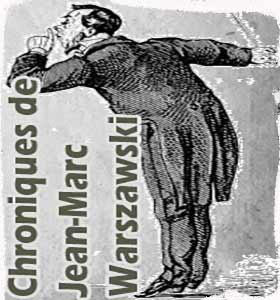
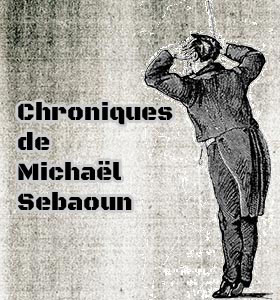
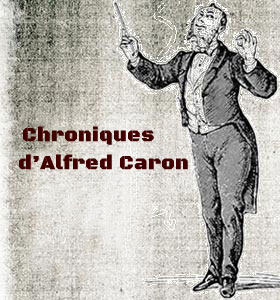
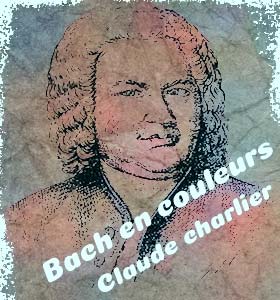
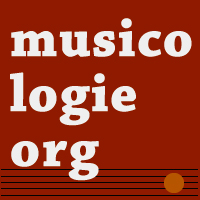 À propos - contact |
S'abonner au bulletin
| Biographies de musiciens | Encyclopédie musicale | Articles et études | La petite bibliothèque | Analyses musicales | Nouveaux livres | Nouveaux disques | Agenda | Petites annonces | Téléchargements | Presse internationale | Colloques & conférences | Collaborations éditoriales | Soutenir musicologie.org.
À propos - contact |
S'abonner au bulletin
| Biographies de musiciens | Encyclopédie musicale | Articles et études | La petite bibliothèque | Analyses musicales | Nouveaux livres | Nouveaux disques | Agenda | Petites annonces | Téléchargements | Presse internationale | Colloques & conférences | Collaborations éditoriales | Soutenir musicologie.org.
Musicologie.org, 56 rue de la Fédération, 93100 Montreuil, ☎ 06 06 61 73 41.
ISSN 2269-9910.

Samedi 21 Décembre, 2024

